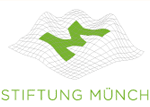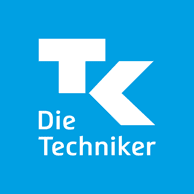Telemedical studies
ABBVIE HEALTHCARE MONITOR
Mood on the future issues of the German health system
AbbVie Germany is the first biopharmaceutical company to regularly ask the opinion of the German population on health care issues in cooperation with the renowned market research institute TNS EMNID. We would like to know the public’s confidence in the healthcare system, its stakeholders and, above all, its ability to innovate. The AbbVie Healthcare Monitor is carried out as a monthly representative survey and is intended to provide a regular contribution to the socio-political debate around the topic of health. In addition to current sentiment, the survey also raises opinion trends over months.
“With this survey, we want to learn more about what Germans think about their health care and where they see future challenges. Especially the confidence of the Germans in the health care system is a question we have never considered before “- Anja Moeller, Head of the City Office of AbbVie Germany.
Link to the population survey
Study – ‘Digital Health Applications’
Health apps can empower patients in their role
The supply of health apps is growing steadily. On the Web countless health websites are in competition for the attention of the users. But what is behind the offer, what relevance does it have for health care? The Bertelsmann Stiftung has systematically analyzed the market for digital health applications for citizens and derived theses on the status quo of supply.
Link to Study
Study – Electronic Patient Records
Nationwide adoption needs long-term strategy and effective governance structure
•Inter-Institutional Electronic Patient Records (eEPA) increase the quality and efficiency of care
•eEPA systems are the key technology lever for more healthcare collaboration
•The files strengthen patients’ role and must be considered as comprehensive treatment management platforms from the beginning
•Implementation is a complex technical and organizational process that requires a long-term strategy and should be phased-in
•A special governance structure should be created that allows participation but at the same time remains capable of action and decision
IN-TIME study
Reduction of mortality in ICD and CRT-D patients by BIOTRONIK Home Monitoring (R)
The BIOTRONIK-sponsored IN-TIME study is the first randomized controlled trial in the world to demonstrate a significant reduction in total mortality in heart failure patients with implant-based long-distance care. In patients with severely impaired left ventricular function and NYHA Class II / III who had an implant with BIOTRONIK Home Monitoring®, a significant reduction in overall mortality was observed when compared to standard follow-up. Based on the Kaplan-Meier-curve, mortality after a one-year follow-up period was 3.4 percent in the home monitoring group and 8.7 percent in the group with standard aftercare.
Press release – Download pdf – 160 KB
Bitkom study
Digital Health market with great growth potential
Whether it’s a fitness tracker, online consultation or electronic patient file: Germans are in favor of the digitization of the health care system. This was the result of a survey conducted by the Digitalverband Bitkom together with the Bavarian TelemedAllianz (BTA).
Presentation – Download pdf – 227 KB
Digital Health
Respondents are very interested in telemedicine services: for example, one in five (20 percent) respondents states that in the event of illness they would in any case have telemedical monitoring of their own health status, and another 39 percent can envisage using this option. A total of 6 out of 10 Germans (59 percent) are thus open to the so-called tele-monitoring …
Presentation – Download pdf – 230 KB

Digitization of the healthcare industry
Key Issues paper
In the healthcare industry – one of the largest German economic sectors – digitization is playing an increasingly important role. However, the pace of digitization in this industry leaves something to be desired. A central hurdle is the entry of innovative ideas into the first healthcare market. Although many creative start-ups with innovative ideas and business models are already in the industry, access to the healthcare market is almost impossible for them to master.
Key points paper: Download pdf – 5 MB
BMWi (Federal Ministry of Economics) study: Innovation impulses of the health industry
Impact on medical costs, competitiveness and employment
Through innovations in the healthcare industry and advances in medical technology, economic savings of 22 billion euros have been achieved in recent years. This has been demonstrated by the study presented by the Federal Ministry of Economics (BMWi).
Results of the research project: Download pdf – 3,3 MB

Further development of the eHealth strategy
The study “Further development of the e-health strategy” includes an inventory on how the increasing digitization can be used for new health care structures and processes. In doing so, the opportunities, challenges and risks of individual technological developments, including the key players in the healthcare sector, were systematically and comprehensively reviewed. The inventory included both national and international considerations. A special focus was placed on the topic “big data”.
BMG Weiterentwicklung_der_eHealth strategy final version
eHealth – Interoperability Planning Study
Improve healthcare through the use of modern information and communication technologies.
The Federal Ministry of Health (BMG) has agreed with the organizations of self-government on measures to ensure the exchange of information between the approximately 200 different information technology systems in outpatient and inpatient care today. The basis for this understanding was the “Planning Study on Interoperability”, a project of the BMH mid-2010 in connection with the IT summit process of the Federal Chancellor founded eHealth Initiative. The initiative is supported by all top-level self-governing organizations and corporate associations responsible for IT use in healthcare.
Download pdf – 40 KB
https://publicwiki-01.fraunhofer.de/Planungsstudie_Interoperabilitaet/index.php/Hauptseite

Study – Opportunities and Risks of Health Apps
Albrecht, U.-V. (Ed.), Hannover Medical School, 2016
The uses of health-related apps range from wellness applications to programs for diagnosis and therapy. Various players in the healthcare sector have different hopes in the use of mHealth.
Smartphones and apps have become natural companions with personal access to all areas of life. Health apps have the potential to change healthcare. The justified use of the technology requires a benefit and risk assessment that requires medical, ethical, legal, economic and political discussion. The CHARISMHA study forms the basis in the form of a scientific stocktaking on the topic and provides an initial analysis with the identification of fields of action as well as options for action.
Download pdf – 3.6 MB
CardioMEMS European Monitoring Study for Heart Failure
The goal of MEMS-HF is to characterize the benefits of the CardioMEMS ™ HF system in a real-world setting. It is a prospective, non-randomized post-market study. 230 patients are treated in about 20 centers. The patients serve as their own controls: the data from the previous year are compared with the data after implantation. Principal Investigator is Prof. Dr. med. Christiane Angermann of the German Center for Heart Failure in Würzburg, Bavaria.
2017 Global Health Care Outlook
Making progress against persistent challenges
The challenges of providing and financing health services worldwide have not changed dramatically in recent years – and they probably will not do so in 2017 either. But how should stakeholders in the sector tackle these ongoing challenges?
Deloitte – Study Perspective E-Health
Consumer solutions as the key to success?
The digitization of the German health care market is currently being carried out to a certain extent “bottom-up”: E-health offers are predominantly prevailing at the consumer level. The study shows the development. “E-Health Perspective – Consumer Solutions Key to Success?” Is the second publication in the Intelligent Networks series of studies, created in close collaboration with Deloitte’s Life Science & Health Care industry experts.
Download pdf – 570 KB

Study: Doctors Want Digital Exchange Communication is still primarily done by letter
Link to the study: https://www.stiftung-gesundheit.de/aerzte-und-kliniken-wollen-digitalen-austausch
Results study physicians in the future market health 2017
Link to the results of the study: https://www.stiftung-gesundheit.de/stiftung/studien.htm
eHealth study: Doctors expect better care and more patient safety
Link to the study: https://www.stiftung-gesundheit.de/ehealth-studie-aerzte-im-zukunftsmarkt-gesundheit

Annual Report on Research, Innovation and Technological Performance Germany 2016
Content:
Current developments and challenges
A 1 Social Innovations – No paradigm shift in R & I policy
A 2 Patent boxes – No substitute for R & D tax incentive
A 3 Current challenges for higher education policy
Core topics 2016
B 1 The contribution of SMEs to research and innovation in Germany
B 2 Robotics in Transition
B 3 Business Models of the Digital Economy
B 4 E-Government in Germany: A lot of room for improvement
Structure and trends
C 1 Education and Qualification
C 2 Research and Development
C 3 Innovation behavior of the economy
C 4 Financing research and innovation
C 5 start-ups
C 6 patents
C 7 specialist publications
C 8 Production, Value Added and Employment
Report as download – 4,5 MB
Best Ager study: Home 4.0 instead of retirement home
More quality of life thanks to Ambient Assisted Living
The term Ambient Assisted Living (AAL) describes digital technology that fits into the everyday life of senior citizens and allows them more autonomy. These include, for example, video surveillance, fall sensors and the mobile emergency call. But other digital devices such as vacuum cleaner and care robot support in everyday life. The study examines the acceptance of 60-90 year olds for smart home solutions. Because they are the target group for intelligent, age-appropriate living.
Link to the study:
https://www.feierabend.de/cgi-bin/form/form.pl?formpk=580
The Philips Health Study 2015
Executive Summary: Eight Theses on the Future of Health.
How can innovative solutions look to meet the needs of consumers along the entire healthcare chain? What factors will shape the transformation of the healthcare industry? What do we have to expect if we want to actively shape the future of the healthcare system? These and other crucial questions are examined in this study. The most important results can be summarized in eight central theses.
A study commissioned by Philips GmbH. PubliItr Zukunftsinstitut GmbH
Download pdf – 2.2 MB

On the way to “personalized medicine”: Many Germans want to share their disease data
A large majority of Germans are prepared to provide personal illness data if this results in better prevention and treatment options. This is the result of a representative PwC survey conducted in November 2016 among 1000 nationals over the age of 18. 71 percent of respondents were “open” or even “very open” to the idea – while just six percent voted against it. A quarter of the respondents did not have a clear opinion on the issue or stated that they saw the issue as “neutral”.
Link to the study – Population Survey “Personalized Medicine”

eCare – Information and Communication Technology for Nursing
Digital care applications are designed to improve the quality of care, reduce bureaucracy and increase healthcare efficiency. The demographic change and the shortage of skilled workers among nurses reinforce the discussion about the use of these digital solutions in nursing (ePflege).
But is information and communication technology (ICT) already adequately used in care? Which potentials are available and which obstacles still exist? What can be done to promote ePflege in Germany? Answers to this Roland Berger study on behalf of the Federal Ministry of Health.
Link to the study:
www.rolandberger.com/de/Publications/pub_epflege.html

Network medicine – impulses for Germany from the USA
The aim of this paper is to find out to what extent impulses for a reform of the German health care system based on the concept of network medicine can be derived from the experiences in the USA. To this end, central reform elements of the Patient Protection and Affordable Care Act (ACA) are outlined and the first results are discussed.
Download pdf – 300 KB

Homo Digivitalis – TK Study on Digital Health Competence 2018
Doctor, Internet, family and friends – this is the sequence of information sources that Bayern most often call when they want to inform themselves about health. 84 percent of the respondents in the Free State ask their physicians, 80 percent the global network and 75 percent family or friends. This was the result of the Forsa study “Digital Health Competence 2018”
Download pdf – 1.3 MB
press release
